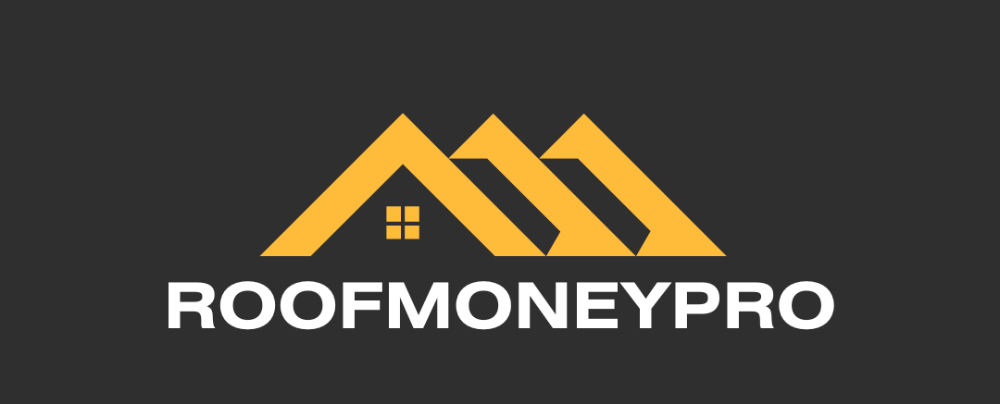What Are Dividends? A Simple Guide for Roofing Sales Reps and Contractors
Oct 23, 2025
Ever wondered how investors make money beyond just buying and selling stocks? Most people think that you have to set aside massive amounts of money to buy real estate or take a leap into starting your own business.
That is simply not the case!
In fact a huge benefit is that you don't have to take out massive amounts of debt such as you would to acquire an investment property or fund a business.
Dividends are a powerful way to earn passive income from the stock market. The best thing is that you can make it your primary investment strategy or simply a supplement to building other streams of income.
What Are Dividends?
If you're a roofing sales rep crushing it with commission checks or a roofing business owner reinvesting profits, you've probably wondered how to make your money work as hard as you do on those job sites. That's where dividend investing comes in.
Dividends are cash payments that publicly traded companies distribute to shareholders as a reward for investing. Think of them as your "commission" for owning stock in profitable businesses—except you don't have to knock on doors or climb ladders to earn them.
Not All Stocks Pay Dividends: What Roofing Professionals Need to Know
Here's the reality: not every company pays dividends, and that's okay. Just like how some roofing contractors focus on residential while others chase commercial projects, companies allocate profits differently based on their growth stage.
When companies generate profits (called retained earnings), they face a choice:
Growth-Stage Companies reinvest earnings into expansion—new equipment, R&D, hiring crews. These are like roofing startups scaling rapidly in new markets.
Mature Companies distribute earnings as dividends to shareholders. Think established building materials manufacturers or insurance companies with steady, predictable profits.
Types of Dividends Roofing Investors Should Know
Cash Dividends: Direct payments to your brokerage account (most common)
Stock Dividends: Additional shares instead of cash
For roofing professionals with irregular income, cash dividends provide the consistency many crave.
How Do Dividends Work? The Timeline Every Roofing Professional Must Understand
Dividends aren't automatic. A company's board of directors evaluates three key factors:
- Net Income: Profits after all expenses (similar to your net profit after materials, labor, and overhead)
- Future Growth Needs: Capital required for business expansion
- Industry Standards: What competitors are paying
Critical Dividend Dates for Roofing Sales Reps and Business Owners
Missing these dates costs you money—just like missing a storm season opportunity:
Declaration Date: The company announces dividend amount and payment schedule
Ex-Dividend Date: THE MOST IMPORTANT DATE. You must own shares BEFORE this date to receive the dividend. Buy too late? No payout.
Here's why: On the ex-dividend date, the stock price drops by the dividend amount. A $50 stock paying a $0.50 dividend opens at $49.50.
Record Date: Company records eligible shareholders
Payment Date: Dividend hits your account
Example: Own 10,000 shares paying $0.30 per share = $3,000 dividend payment. For roofing reps earning $100K+ annually, this passive income can supplement those slower winter months.
Why Dividend Investing Matters for Roofing Professionals
1. Passive Income for Roofing Sales Reps with Variable Commissions
Storm seasons are feast. Winter can be famine. Dividend income provides consistent cash flow regardless of weather patterns or housing market cycles.
2. Multiple Payment Schedules = Steady Monthly Income
Smart roofing professionals invest in companies with different dividend schedules:
- Company A pays dividends in January, April, July, October
- Company B pays in February, May, August, November
- Company C pays in March, June, September, December
Result? Monthly passive income that smooths out seasonal roofing industry fluctuations.
3. Compound Growth: The Secret Roofing Business Owners Already Understand
You reinvest profits into better equipment, more trucks, and skilled crews to scale your roofing operation. Apply the same principle to dividends.
Reinvesting dividends buys more shares, which generate more dividends, which buy more shares—exponential growth without additional effort. While you're closing deals or managing job sites, your investment portfolio compounds in the background.
4. MASSIVE Tax Advantages for High-Earning Roofing Professionals
This is critical for roofing sales reps and business owners in higher tax brackets.
Qualified dividends are taxed at 0%, 15%, or 20%—significantly lower than ordinary income rates.
Real Example: You earn $100,000 in roofing commissions (taxed at 22%) but your qualified dividends are taxed at only 15%. That's a 7% tax savings on investment income.
Requirements for Qualified Dividends:
- Paid by U.S. corporations
- You've held the stock for 60+ days during the 121-day period around the ex-dividend date
How to Find Dividend-Paying Stocks: A Roofing Professional's Research Guide
Understanding Dividend Yield
Dividend yield shows annual return from dividends alone:
Formula: (Annual Dividend ÷ Stock Price) × 100
Example: $6 annual dividend ÷ $85 stock price = 7% yield
What's a Good Dividend Yield for Roofing Professionals?
Target Range: 2% to 6% is generally attractive
Higher Yields: REITs (real estate investment trusts), MLPs (master limited partnerships), and BDCs often exceed 6%
Warning: Extremely high yields may signal declining stock prices or unsustainable payouts.
Financial Health Metrics Roofing Business Owners Will Recognize
Evaluate companies like you'd assess a roofing subcontractor:
- Debt-to-Earnings Ratio: Can they cover obligations?
- Liquidity: Do they have cash reserves for downturns?
- Dividend History: Consistent payments over 10+ years?
- Payout Ratio: Are dividends 30-60% of earnings (sustainable) or 90%+ (risky)?
Top Dividend Stocks Roofing Professionals Consider
- Johnson & Johnson (Healthcare)
- Chevron (Energy)
- General Dynamics (Defense)
- PepsiCo (Consumer Goods)
- NextEra Energy (Utilities)
- Medtronic (Medical Devices)
- Kimberly-Clark (Consumer Products)
- Hormel Foods (Food Production)
- Sysco (Food Distribution)
- Target (Retail)
Many roofing professionals also invest in building materials companies like Owens Corning, Beacon Roofing Supply, or Home Depot—industries they understand firsthand.
Risks Every Roofing Professional Must Know Before Investing in Dividends
Dividend Cuts: When Companies Reduce or Eliminate Payouts
Just like losing a major roofing contract, dividend cuts hurt. Stock prices typically plummet when companies announce reductions.
Common Causes:
- Declining earnings
- Rising debt levels
- Major acquisitions or stock buybacks
Tax Implications: Ordinary vs. Qualified Dividends
Qualified Dividends: Lower tax rates (0%, 15%, or 20%)
Ordinary Dividends: Taxed as regular income (up to 37% for high earners)
The 60-day holding period is crucial. Day trading dividend stocks means ordinary income tax treatment—devastating for six-figure earning roofing professionals.
Opportunity Cost: Dividend Stocks vs. Growth Stocks
Dividend stocks offer stability and income—perfect for roofing professionals seeking consistent cash flow. However, mature dividend companies typically grow slower than tech startups or emerging market leaders.
Consider Your Goals:
- Supplementing roofing income? Dividend stocks excel
- Maximizing long-term wealth? Growth stocks may outperform
- Balanced approach? Combine both strategies
How Roofing Sales Reps and Business Owners Can Start Earning Dividends
Step 1: Choose Your Account Type
Brokerage Account: Access funds anytime, dividends taxed annually
Traditional IRA: Tax-deferred growth, penalties for early withdrawal
Roth IRA: Tax-free growth and withdrawals (ideal for young roofing professionals)
Step 2: Select Dividend Reinvestment Options
Automatic DRIP (Dividend Reinvestment Plan): Dividends automatically buy more shares—set it and forget it while you focus on roofing sales
Manual Reinvestment: You control when and where dividends go
Step 3: Build a Diversified Portfolio
Don't put all your commission checks into one stock. Spread investments across:
- 5-10 different dividend-paying companies
- Multiple industries (avoid overweighting building materials if roofing is your income source)
- Various dividend yields and payment schedules
Step 4: Track Performance Like You Track Roofing Metrics
Monitor quarterly just like you review sales numbers:
- Total dividend income
- Dividend growth rates
- Portfolio value appreciation
- Tax efficiency
Dividend Investing Strategy for Roofing Professionals: Action Plan
For Roofing Sales Reps Earning $75K-$150K:
- Start with $500-$1,000 monthly investments
- Target 3-5% dividend yield
- Reinvest all dividends for 10+ years
- Build $500-$2,000 monthly passive income by retirement
For Roofing Business Owners Earning $150K+:
- Invest $2,000-$5,000 monthly
- Maximize tax-advantaged accounts first
- Consider qualified dividend strategies to minimize tax burden
- Build portfolio generating $3,000-$10,000 monthly passive income
Build Financial Security Beyond Roofing Commissions
Dividend investing provides roofing sales reps and contractors with reliable passive income that doesn't depend on storm seasons, housing markets, or physical labor. By selecting quality dividend stocks and reinvesting consistently, you can build long-term wealth that supplements—or eventually replaces—your roofing income.
The best time to start was yesterday. The second best time is today.
Ready to start your dividend investing journey?
Research dividend stocks in industries you understand, open a brokerage account, and make your first investment.


